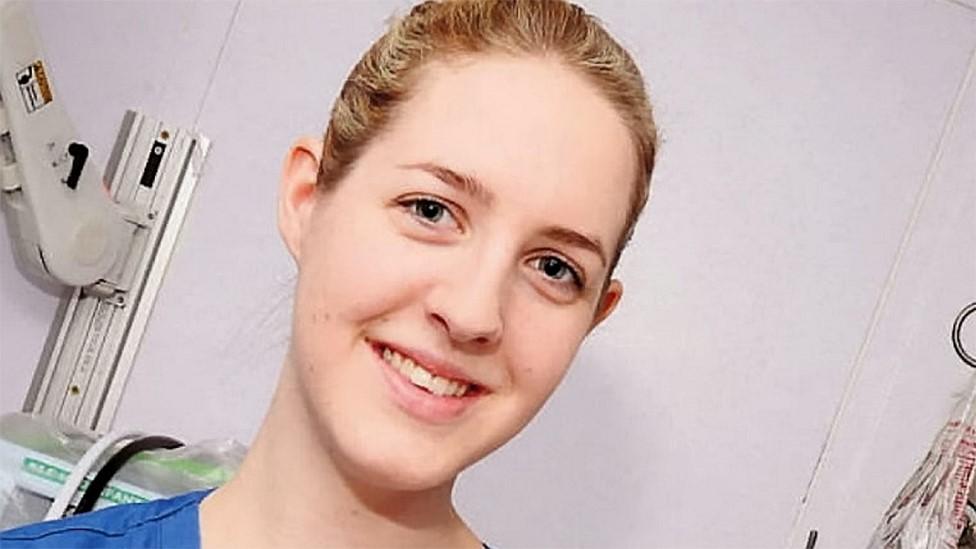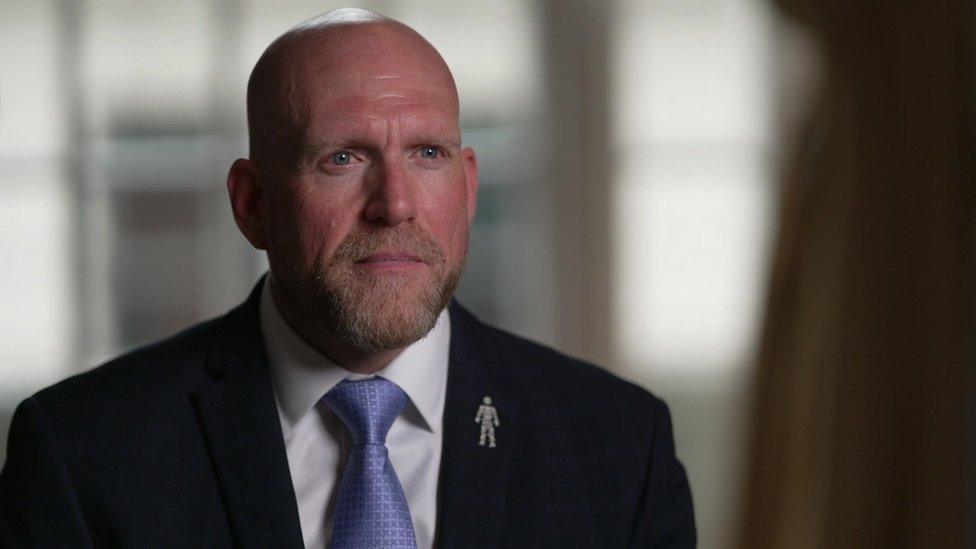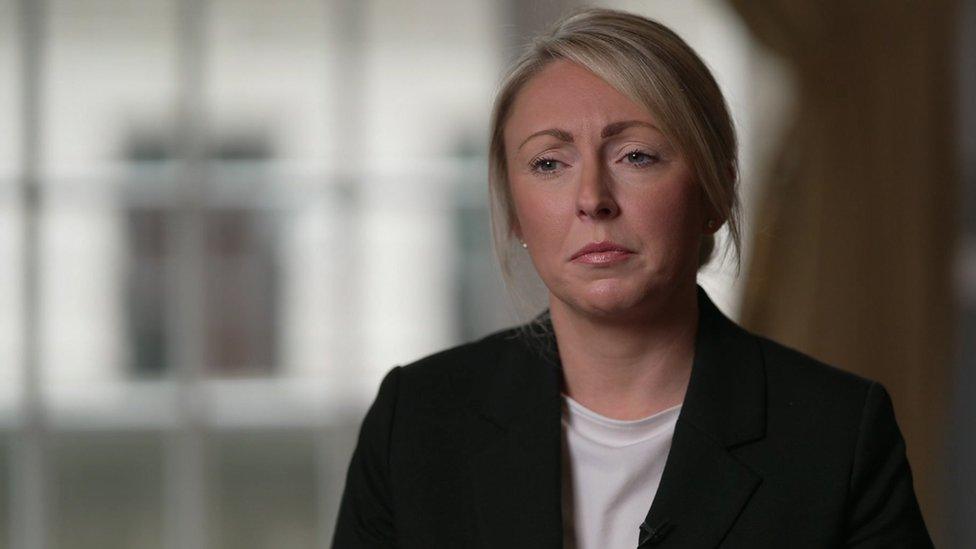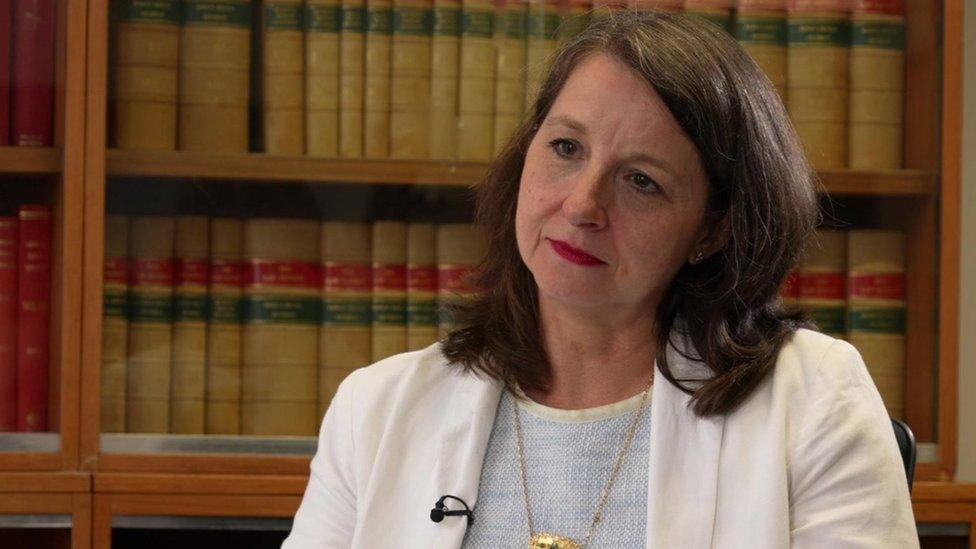Lucy Letby: Investigating UK's most prolific child serial killer
- Published

Lucy Letby has been convicted of killing babies on the neonatal unit where she worked
It was the spring of 2017 when an alarming letter arrived at Cheshire Police's headquarters, addressed to the chief constable.
It was from the chief executive of the Countess of Chester Hospital, which had seen an unexplained surge in deaths and near-fatal collapses of premature babies in its neonatal unit.
Doctors were baffled - the deaths defied explanation and fears were mounting that something sinister could be at play.
The events that followed culminated in one of Britain's darkest criminal trials and the conviction of Lucy Letby, the country's most prolific child serial killer in modern times.
"The overwhelming weight of evidence leads us to know she is a killer and, using her words, she is evil," said senior investigating officer Det Supt Paul Hughes.
Shortly after the letter arrived, Det Supt Hughes met three senior medics at the hospital to discuss their mounting concerns.
"What they explained to me were two words - unexplained and unexpected," he said.
"It was those two words the doctors had been trying to work out."

Det Supt Hughes was at the helm of Operation Hummingbird
Operation Hummingbird was launched and Letby was first arrested at her home in Chester in July 2018.
At its height, the investigation involved nearly 70 officers and civilian staff, with detectives gathering some 32,000 pages of evidence and sifting through reams of medical records and data.
Ahead of Letby's trial in October, about 2,000 people were spoken to and nearly 250 people were identified as potential witnesses.
Time and again, the evidence all led to the softly spoken young nurse from Hereford who was often found working overtime as she made early strides in her career.
"Nice Lucy", as one doctor called her.
Letby was interviewed for about 30 hours over the course of her three arrests in 2018, 2019 and 2020.
While Det Supt Hughes found her to be "co-operative", he recalled how she failed to show any overt signs of either empathy or sympathy. Her answers were often clinical.
"She's a difficult one to work out because she is emotionless," he said. "She doesn't respond [in a way] I would have expected.
"For example, we didn't see any sadness or any passion or anything more like an innocent person banging on the table demanding that we should go and find the proper killer."

Det Ch Insp Evans said Letby's normality gave her a cover to commit the crimes
This was the same for Det Ch Insp Nicola Evans, who found Letby to be "nothing out of the ordinary", describing her as "calm and quiet".
"Lucy Letby, for me, is 'beige' in that she was a normal woman in her 20s with a normal life," she said.
"She had a social life, a circle of friends, a family, and she was embarking on her career. She used that normality to form trust and then abused that trust.
"There was clearly something very deceptive about that. That normality gave her a cover to commit the crimes she did."
As the net closed around Letby, one thing remained unclear - why would a nurse who had dedicated her career to caring for the sickest of babies now want to kill them?
"I don't think we know why Lucy Letby did this and we may never know why and that's really difficult," said Det Ch Insp Evans.
"I can't imagine how a parent must feel accepting that."

Pascale Jones described Letby's time on the witness box as "extremely cold and unemotional"
In the autumn of 2017, Pascale Jones from the Crown Prosecution Service first became involved in the case.
She believes Letby was able to get away with her appalling crimes by varying the subtle ways in which she harmed babies in her care.
"If she'd stuck to one modus operandi, she would have probably been found out sooner," she said.
"But because she diversified the ways in which she was attacking babies she was preying on their vulnerabilities.
"And she was always ready to rationalise [and say] 'look, this can be explained'."

BBC Action Line
This is a distressing case so if you, or someone you know, need help after reading about it, the details of organisations offering assistance can be found on the BBC Action Line website.

While Letby's precise motives have never been explained, that was not necessarily a problem for prosecutors.
"What we've got to prove is the criminal intent and the ways in which she was inflicting this damage was clearly lethal," Mrs Jones said.
"She was turning innocuous substances into lethal weapons."
Almost four years later, Mrs Jones said she now believed Letby was "all about control".
"I've rarely come across a personality who is as self-centred as she was. All about herself.
"The power she was granting herself of life and death over the babies at her mercy.
"Mercy? She didn't show any."
'Harrowing evidence'
Letby was was convicted on Friday of murdering seven babies and attempting to kill six others.
Jurors spent more than 110 hours weighing up nine months of often harrowing evidence.
While she awaits her sentencing hearing on Monday, Operation Hummingbird remains active with the force recently recruiting more detectives to join the team.
"I'm sure the public would expect us to look at the entire footprint of Lucy Letby's career," said Det Supt Hughes.
This includes admissions on to the neonatal unit at the Liverpool Women's Hospital while Letby was on placement there.
The families of babies who are a part of this investigation have been informed.
"From 2012 through to 2016, there were more than 4,000 admissions of babies into the neonatal units of both hospitals for us to work through," said Det Supt Hughes.
"This does not mean we are investigating all 4,000.
"It just means that we are committed to a thorough review of every admission from a medical perspective, to ensure that nothing is missed throughout the entirety of her employment as a nurse.
"Only those cases highlighted as concerning medically will be investigated further.
"We want to be confident that when we get to the end of Operation Hummingbird and say we have identified every offence if there are more."

Why not follow BBC North West on Facebook, external, Twitter, external and Instagram, external? You can also send story ideas to northwest.newsonline@bbc.co.uk, external
- Published18 August 2023
